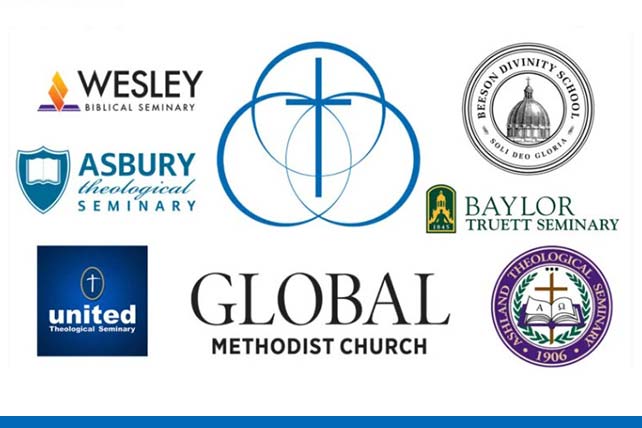That’s not unusual for many seminaries, he said, but Wesley is a relatively small school serving historic Methodist denominations.
Last month, Bishop Scott Jones, one of two active bishops in the Global Methodist Church, joined Truett’s Wesley House of Studies as an affiliate professor and pastor-theologian in residence.
Ashland, too, has a number of faculty and staff who are United Methodist and may become Global Methodist, according to John Byron, dean of its seminary and professor of New Testament.
Ashland is approved to train United Methodist candidates for ordination and counts as many as 32 different denominations among its students and faculty, Byron said. The school applied for recommended status last summer because, he said, “with the coming schism in the church” it recognized Global Methodist students would be looking for a seminary education, too.
“While everybody’s focusing on this particular schism in the United Methodist Church … the church is just going through a tremendous time of change, and that’s impacting not just the congregations, but it’s impacting us as seminaries, how we deliver and what we deliver,” Byron said.
He added, “The truth is, what we’re doing now probably will not look the same way in 10 years or even less.”
Asked whether the Global Methodist Church planned to launch any educational institutions of its own or attract United Methodist schools to join alongside clergy and congregations disaffiliating from the older, mainline denomination, Boyette said “probably not,” but noted those were decisions for others to make in the future.
“Part of our DNA is we believe that we can work cooperatively with other institutions to advance the mission of the Global Methodist Church, so we don’t have to duplicate what others are doing in order to achieve it,” he said.
This article originally appeared here.

